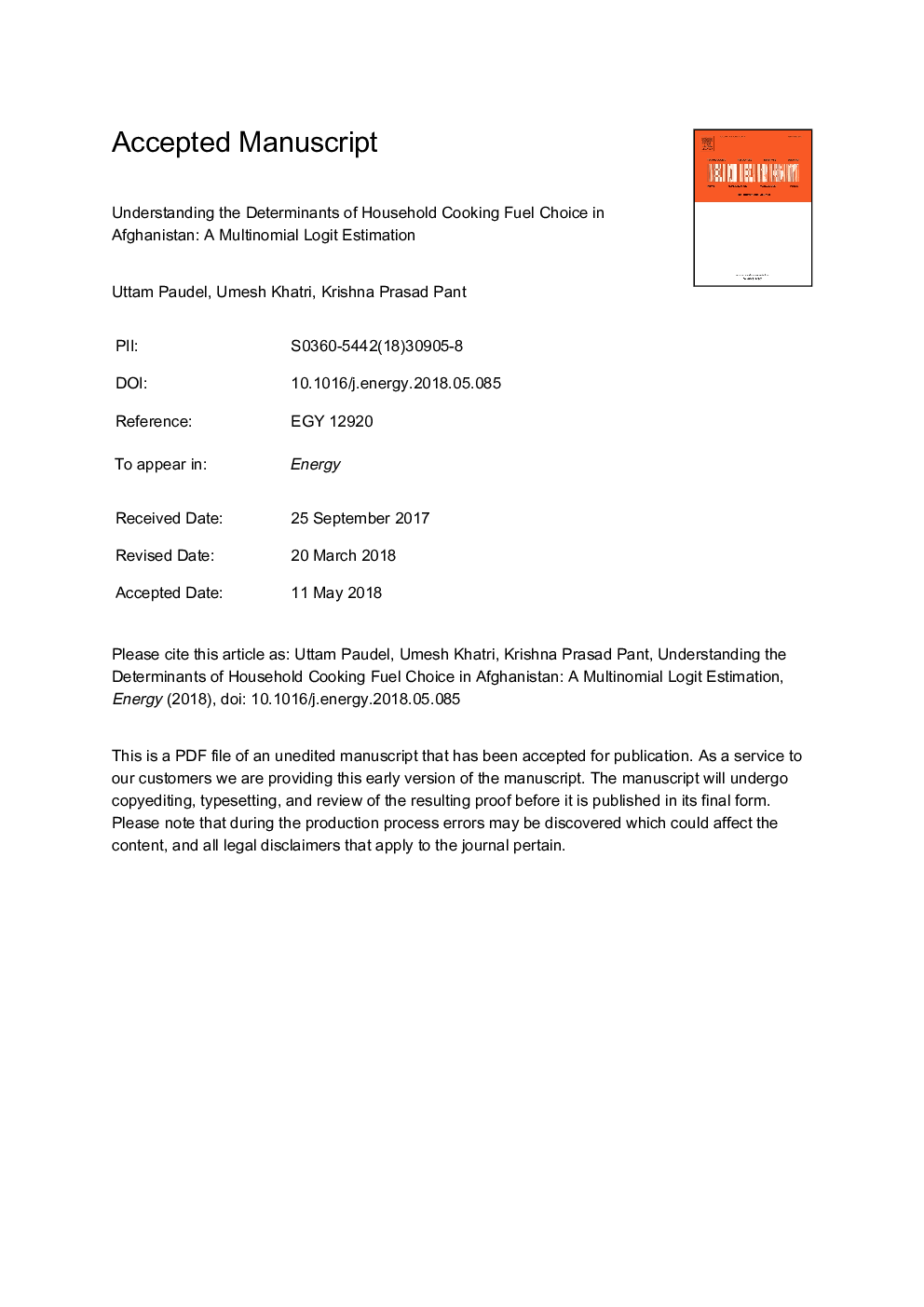| Article ID | Journal | Published Year | Pages | File Type |
|---|---|---|---|---|
| 8071317 | Energy | 2018 | 21 Pages |
Abstract
Cooking energy demand in Afghanistan has mostly fulfilled by traditional energy sources despite availability of health and environment friendly clean energy options internationally. Understanding the determinants of household cooking fuel choice either to prefer clean or traditional energy sources is therefore important to identify policy options for clean energy promotion. For this, a nationally representative household information using Afghanistan Demographic and Household Survey 2015 is analyzed using multinomial logistic regression model. The results show that residence in urban areas, availability of electricity, higher household wealth, high education, married status and separate cooking place positively affect choice of liquefied petroleum-gas as compared to traditional fuels; whereas large family size and aged household head indeed have positive linkages on probability of choosing animal dung as cooking fuel. Robustness of the results shows that wealthy households are more likely to use liquefied petroleum gas and fuel wood compared to poor households, therefore confirm priority for wealth generation. For motivating the rural households to use clean-cooking-fuel, government and other cohorts should put effort on increasing affordability of rural households to clean energy sources through provision and employment opportunities, improving access to electricity and creating awareness about the health and environmental benefits of clean energy.
Related Topics
Physical Sciences and Engineering
Energy
Energy (General)
Authors
Uttam Paudel, Umesh Khatri, Krishna Prasad Pant,
